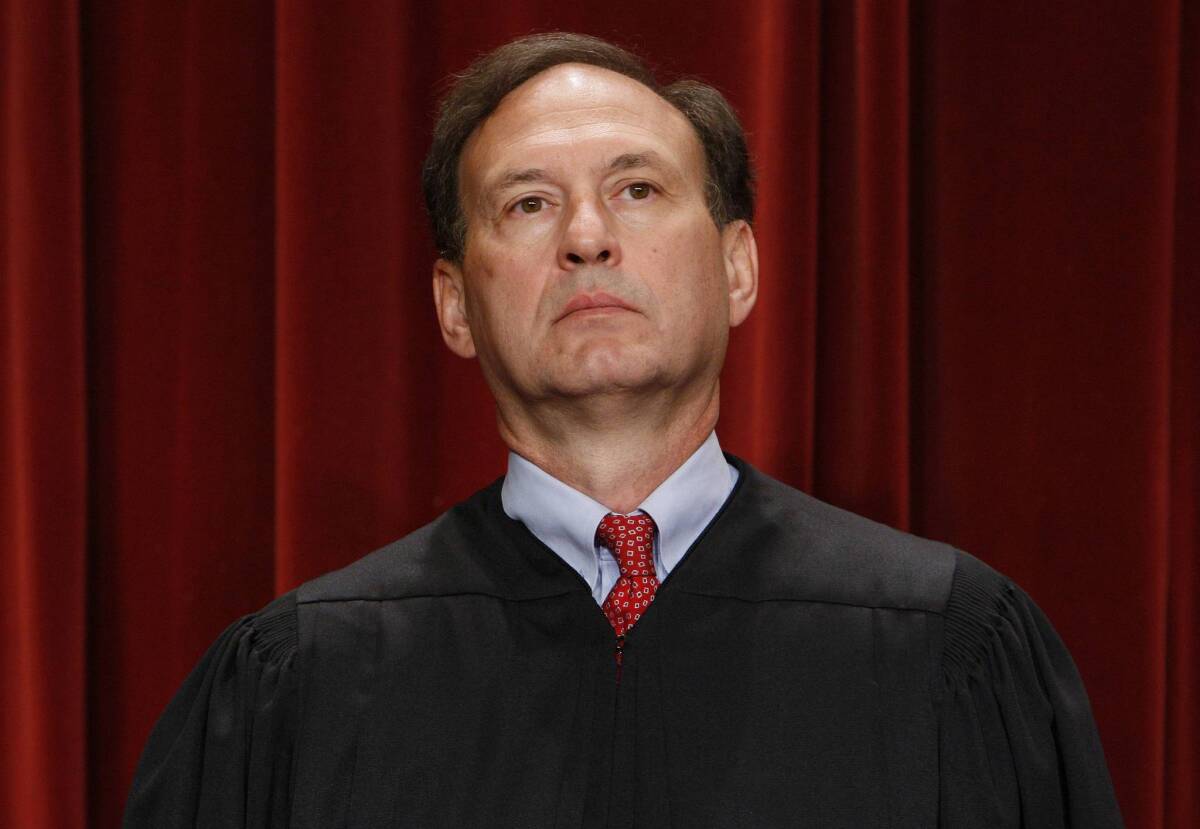The Supreme Court just built a wall to protect border agents from lawsuits

- Share via
In an affront to common decency and the rule of law, the Supreme Court this week shut the courthouse door to the family of a 15-year-old Mexican boy killed in Mexico by a Border Patrol officer who shot at him from the other side of the U.S.-Mexico border.
But the 5-4 decision by the court’s conservative majority is more than just a denial of due process for one aggrieved family. It’s the latest sign that conservative justices seek to make it hard, if not impossible, for victims of abuse by law enforcement officers to have their day in court.
In 2010, Sergio Adrian Hernandez was with some friends in the concrete culvert between El Paso, Texas, and Ciudad Juarez, Mexico. According to lawyers for Hernandez’s family, the boys were playing a game that involved running across the culvert, touching a fence on the U.S. side and then running back to the Mexican side. After Hernandez ran back across the culvert onto Mexican soil, Border Patrol Agent Jesus Mesa Jr. fired two shots at the boy, one of which killed him. Mesa maintained that the boys were attempting to illegally cross the border and that they had pelted him with rocks.
The facts might have been sorted out if Hernandez’s parents had been allowed to pursue their lawsuit for damages against Mesa in a so-called Bivens action, named after Bivens vs. Six Unknown Narcotics Agents, a 1971 decision in which the court held that someone claiming to be the victim of an illegal arrest and search could sue the arresting officers for violating the 4th Amendment. The court later permitted Bivens-style lawsuits in two other situations: a claim by a former congressional staffer that she was the victim of sex discrimination and an 8th Amendment claim that a federal prisoner had been denied adequate medical care. The court allowed such lawsuits even though they weren’t authorized by an act of Congress.
Those decisions were correct. Constitutional rights don’t mean much if there isn’t a remedy available when they are violated. And it’s the role of federal courts to protect those rights.
Los Angeles Times editorial board endorsements for the U.S. House, California ballot measures and more.
Yet the court has been undermining that principle, and it did so again on Tuesday. It held that the Hernandez lawsuit couldn’t proceed. Writing for the majority, Justice Samuel A. Alito Jr. suggested that the “new context” in which the claim was made — a cross-border shooting — touched on matters of foreign policy best left to the executive branch in the absence of a federal law specifically authorizing such suits. The court made a similar argument in 2017 when it ruled that Arab and South Asian men detained after the Sept. 11, 2001, terrorist attacks couldn’t sue high-ranking federal officials.
Justices Clarence Thomas and Neil M. Gorsuch also suggested in a separate concurring opinion that Bivens should be overruled outright. But even if the precedent stays on the books, it’s sadly clear that conservative justices are determined to hollow it out. The family of Sergio Hernandez won’t be the only victims of that cramped and callous approach to enforcing constitutional rights.
More to Read
A cure for the common opinion
Get thought-provoking perspectives with our weekly newsletter.
You may occasionally receive promotional content from the Los Angeles Times.







